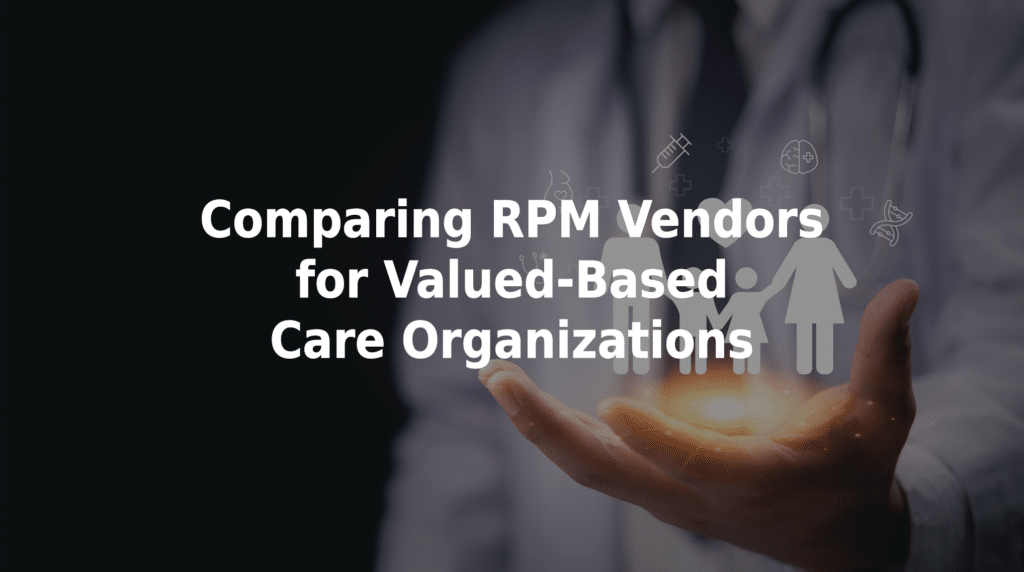Comparing RPM Vendors for Value-Based Care Organizations
With a growing number of solutions on the market, comparing RPM vendors for value-based care organizations is important. Finding the right partner requires careful evaluation of their program’s functionality, scalability, integration, and support for value-based performance goals.
Why Vendor Selection Matters
Value-based care organizations depend on medical technology partners that can deliver actionable insights, support patient engagement, and streamline workflows. The right RPM solution reduces hospital readmissions, improves quality metrics, and aligns with CMS reporting requirements. Conversely, selecting the wrong vendor can lead to low adoption, data silos, and lost revenue.
Key Criteria for Comparing RPM Vendors for Value-Based Care
When comparing vendors, it’s important to assess more than device selection. Look for a comprehensive, integrated program that supports long-term clinical and financial goals.
1. Integration With EHR and Care Management Systems
RPM platforms should offer seamless integration with your existing EHRs. For example, RemotePatientPro™ provides bi-directional data exchange and alert systems that reduce manual tasks and support timely health interventions.
Questions to ask:
- Is the platform interoperable with our EHR system?
- Can alerts and vitals be pushed directly into provider workflows?
2. Patient Engagement Tools
For value-based care to be effective, patient behavior has to change. Look for RPM vendors that offer user-friendly devices, multilingual interfaces, and automated reminders. Engagement tools such as virtual onboarding, education content, and secure messaging are key differentiators.
Tip: Vendors that specialize in chronic care management often have higher patient adherence rates.
3. Clinical Alert Management and Automation
One of the biggest challenges for RPM teams is alert fatigue. Leading vendors use AI and rules-based logic to prioritize only clinically relevant alerts, saving provider time.
What to compare:
- Are alerts customizable?
- Can the system automatically escalate based on severity?
4. Scalability and Support
RPM adoption should grow with your organization. When comparing RPM vendors, ensure the platform can scale across multiple locations and patient populations. Ask about implementation support, training, and customer service responsiveness.
5. Reimbursement and Compliance Support
A vendor’s ability to help you navigate CMS and payer billing codes is essential for a program’s ROI. Platforms that include documentation tools and code mapping simplify that compliance.
Learn more about RPM reimbursement guidance here.
Why RemotePatientPro Stands Out
RPP is built specifically for organizations focused on value-based outcomes. We offer:
- EHR integration.
- Advanced engagement tools.
- AI-driven alert filtering.
- Built-in billing and compliance support.
- Scalable infrastructure to serve multisite networks.
Ready to Evaluate RPM Vendors with Confidence?
RemotePatientPro offers the tools and support you need to succeed. Contact us today to learn more about a program and schedule a demo of our turnkey solution!

